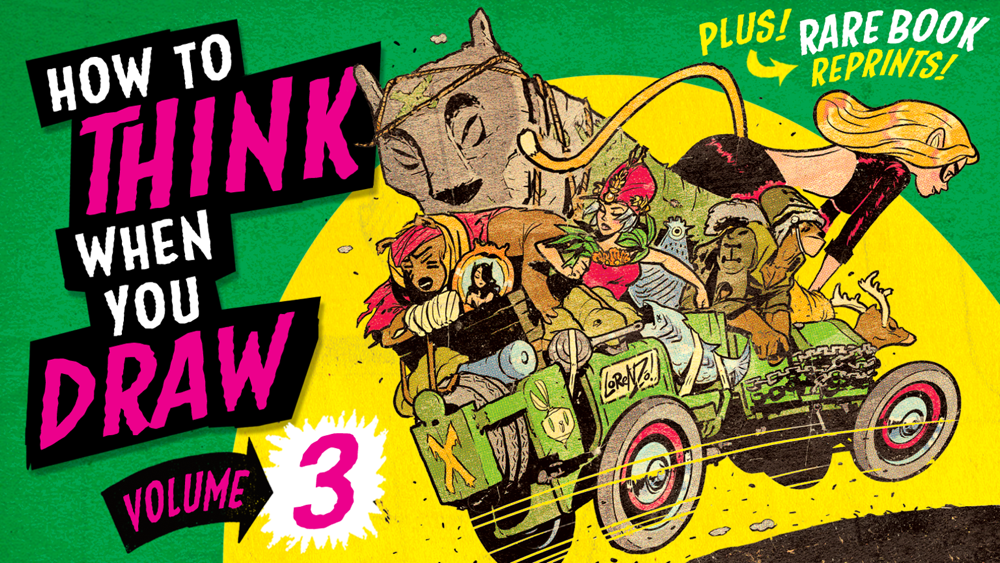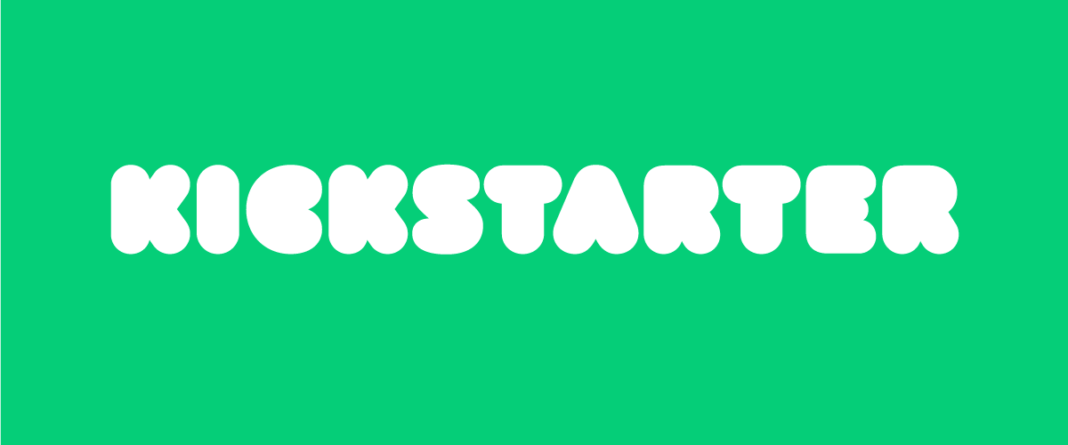Following on last week’s announcement that Kickstarter was moving to a platform based on the blockchain, the crowdfunder has posted a statement with more details of their move. and Director of publishing and Comics Outreach Oriana Leckert has revealed more of Kickstarter’s success for comics projects.
In an interview with Rob Salkowitz that took place before the crypto announcement, Leckert revealed that 2021 was the third “best year ever” in a row for Kickstarter’s comics segment.
“2021 has already raised more money, had more [comics and publishing] projects and a higher success rate, so by every metric, we’re killing it,” said Leckert. In 2020, comics and publishing creators launched 2379 projects, of which 1758 were funded, for a 74% success rate. In 2021, those numbers were 2825 projects (2071 successful), for a 77% overall success rate, tops among categories on the platform. Projects that had at least 25 backers – Kickstarter’s informal metric for identifying a serious effort to reach an audience beyond friends and family – succeeded a remarkable 86% of the time.
Funds raised were $30 million in 2021, up from $26 million in 2020. Salkowitz notes that if Kickstarter were an indie publisher, it would have a market share of about 2.5%, which would place it in the lower ranks of the top 10 if Kickstarter were a commercial publisher.”

Kickstarter also released a series of statements and FAQs about their move (which was also confusingly released as an interview with Comic Book Yeti). To clear up some misconceptions, they noted that Kickstarter will NOT shift to running on cryptocurrencies — it will still take regular old money. They reiterated that this move will build a new, open source platform that everyone can use:
That’s why we’re supporting the development of a decentralized crowdfunding protocol that will make it possible for people to launch and fund creative projects anywhere, whether it’s on Kickstarter.com or someplace else on the web.
You may have heard of HTTP (Hypertext Transfer Protocol) which helps you browse the web, or SMTP (Simple Mail Transfer Protocol) which helps you send email. Protocols like these make up the unseen infrastructure of the internet. Imagine that, but for crowdfunding creative projects.
As a user, whether you’re a creator or a backer, the Kickstarter experience you’re familiar with will stay the same. You won’t “see” the protocol, but you will benefit from its improvements. Backers can continue to utilize normal credit and debit cards to pledge to campaigns, and creators can continue to receive normal currency to fulfill their projects.
Since everyone is invited to help contribute to the protocol and participate in the ecosystem, a wider array of good ideas will surface about how to transform crowdfunding for the better. As a result, more creative projects will ultimately find the tools and resources they need.
We believe decentralization will result in innovation like we’ve never seen before, and that it’s key to the future of crowdfunding. We’re excited to be working towards that future—as always, in service of our mission to help bring creative projects to life.
Find more details, including plans for an independent organization and a white paper outlining the technology and plans for the protocol, in our full announcement.
They also stressed that the new platform will run on a less energy-intensive public blockchain:
The protocol will live on Celo, a carbon-negative, public blockchain, be open source, and be available for collaborators, competitors, and independent contributors from all over the world to build upon, connect to, or use.
This openness enables everyone who is interested in the promise of crowdfunding to help build its future and have a say and stake in how it works. Blockchain will also open the potential to be rewarded for contributing to the systems that you use everyday.
Proof of stake vs proof of work validation for cryptocurrencies is still a little vague on how exactly it operates as I learned when I read this explainer. Perhaps one of you whippersnappers can explain it to me in plain English — a language rarely used when discussing the blockchain.
Controversy among comics creators who use Kickstarter remains. Webcomics/publishing collective Hiveworks released a statement on their Tumblr, and plans to create their own funding platform, should Kickstarter go through with the move.
Hiveworks is an independent, artist-run studio and publisher of webcomics and graphic novels, providing service to almost 200 creators for over a decade. Crowdfunding has been an important part in allowing diverse voices to flourish and maintaining creators’ independence.
Since 2012, Hiveworks has been a long-time, returning client of Kickstarter, having hosted 17 successful projects and assisted with dozens more. Over time, we earned the trust of our backers and built strong, wonderful relationships with Kickstarter staff, which is why the platform remained the #1 choice for our company.
Unfortunately, we are disappointed to learn that Kickstarter intends to pivot into blockchain. As a company, we are strongly against blockchain, including its use as a facilitating token for crowdfunding artistic projects, most prominently in the form of NFTs. It’s hard to view Kickstarter’s pivot to blockchain as something that will truly help Kickstarter in its main mission– helping projects come to life.
If Kickstarter decides to move forward with blockchain we’ll be shifting to an in-house pre-order system as per creator preferences, which will be rolled out paired with the next planned Kickstarters we have already scheduled.
Signed,
The Hiveworks Team
Kickstarter definitely shows no signs of backing away from the announced plans — but observers note that it is all very much blue sky at this point, with an actual move to a new platform somewhere in the indefinite future. We suspect a lot will have changed everywhere by the time this becomes real. And also gently remind folks that a lot of folks thought crowdfunding itself was a scam when it debuted more than a decade ago.
More to come.






This smells like “VC likes blockchain, so we’re putting blockchain in our funding requests.”
The claim that they are “carbon-negative” is a tell. Celo is based on Bitcoin which uses PoW, which is environmentally devastating. Their so-called carbon negativity is based on offsetting those environmental costs, but like everything else with crypto these days, I suspect it’s just another scam. In any case, I assume everyone knows that “opportunity cost” means. Celo should be renamed WeCrypto.
PoW: You consume huge amounts of energy to solve crypto puzzles as quickly as possible, in a race to add the next block to the blockchain. If you are a bad actor validating incorrect transactions, your extension gets ignored and you’ve wasted your money.
PoS: Instead of investing in the equipment and energy to be first in the race to solve a crypto puzzle, you stake the investment itself. If you are a bad actor validating incorrect transactions, you lose your stake.
The above comment is simply wrong. Celo is not based on Bitcoin and does in fact use Proof of Stake.
https://docs.celo.org/celo-codebase/protocol/proof-of-stake
I’m sure Taylor will still find a reason to be upset about this extremely vague announcement with almost all details TBD but this ain’t it.
Comments are closed.